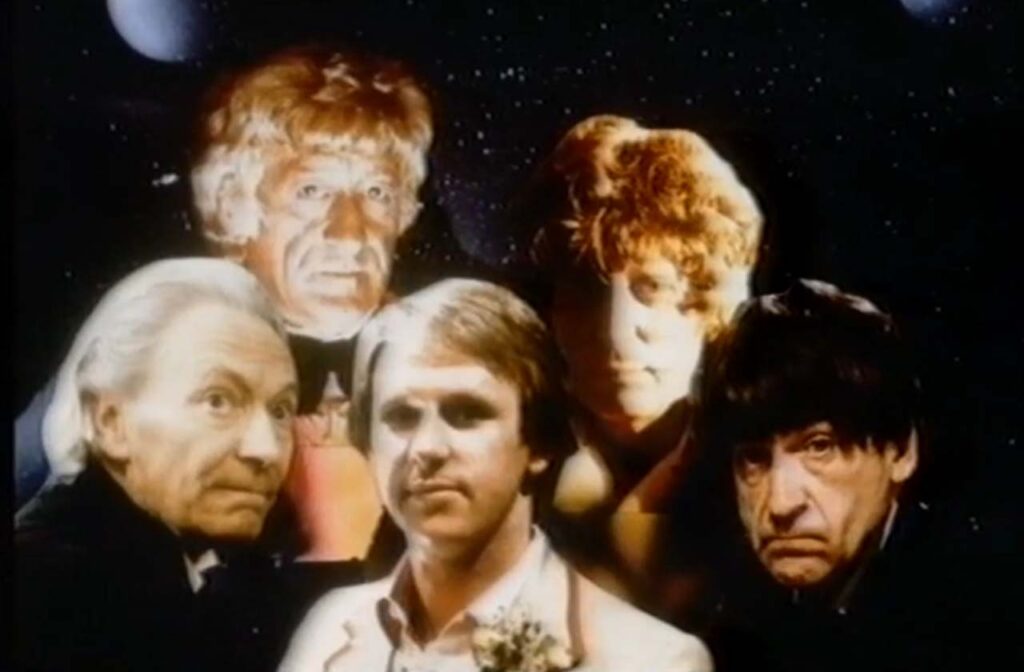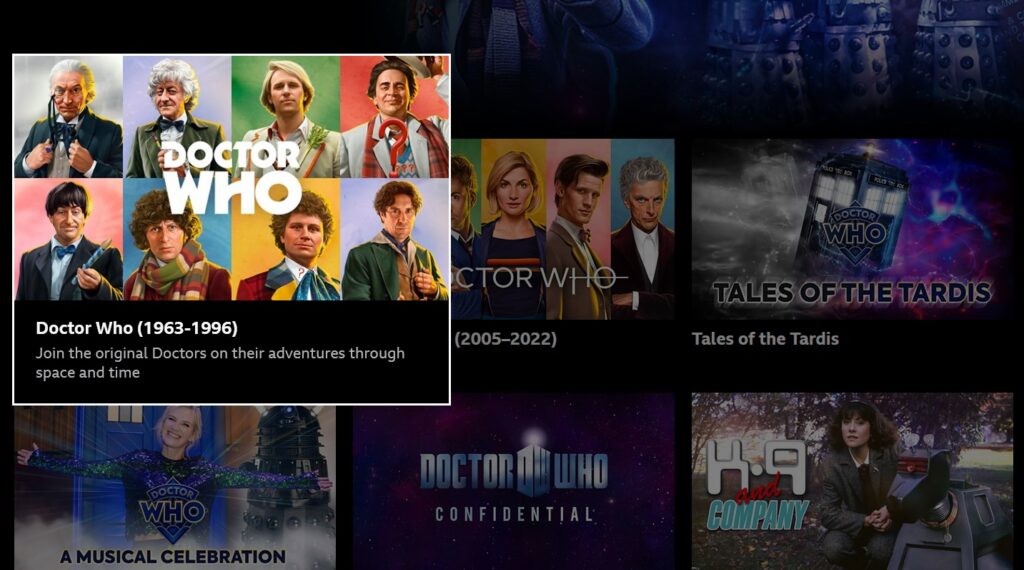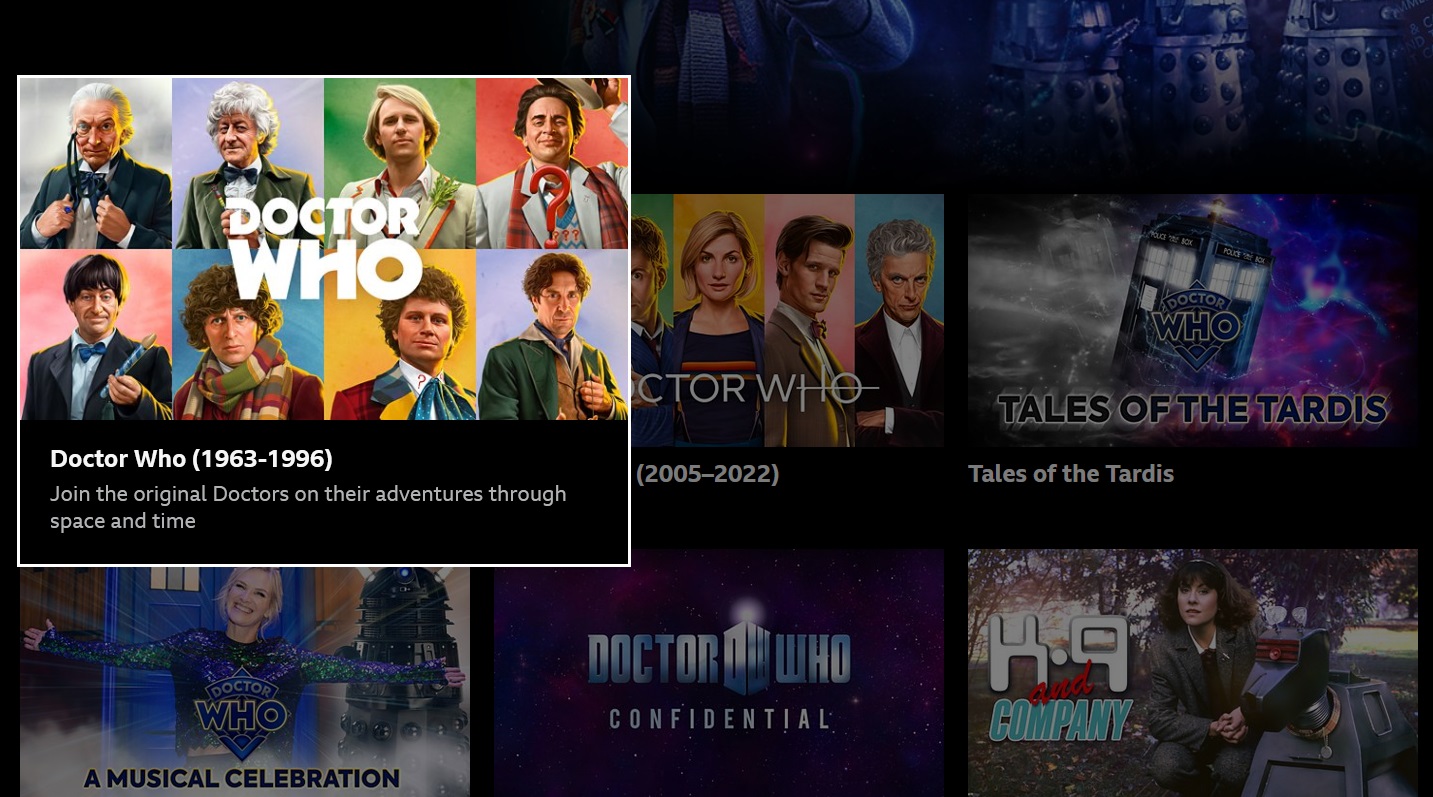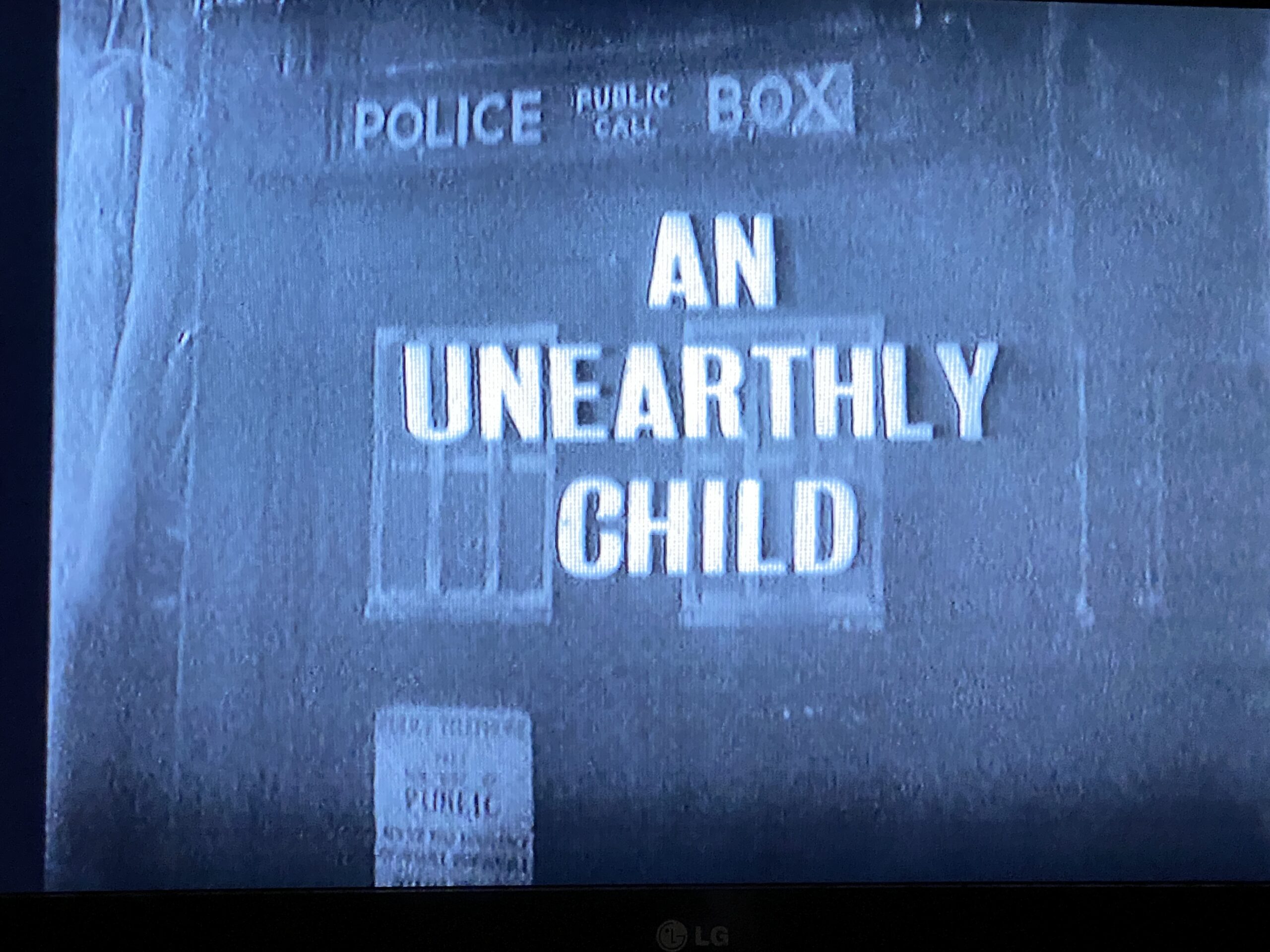Now Reading: Don’t watch it all at once … The original run is meant to be savoured
-
01
Don’t watch it all at once … The original run is meant to be savoured
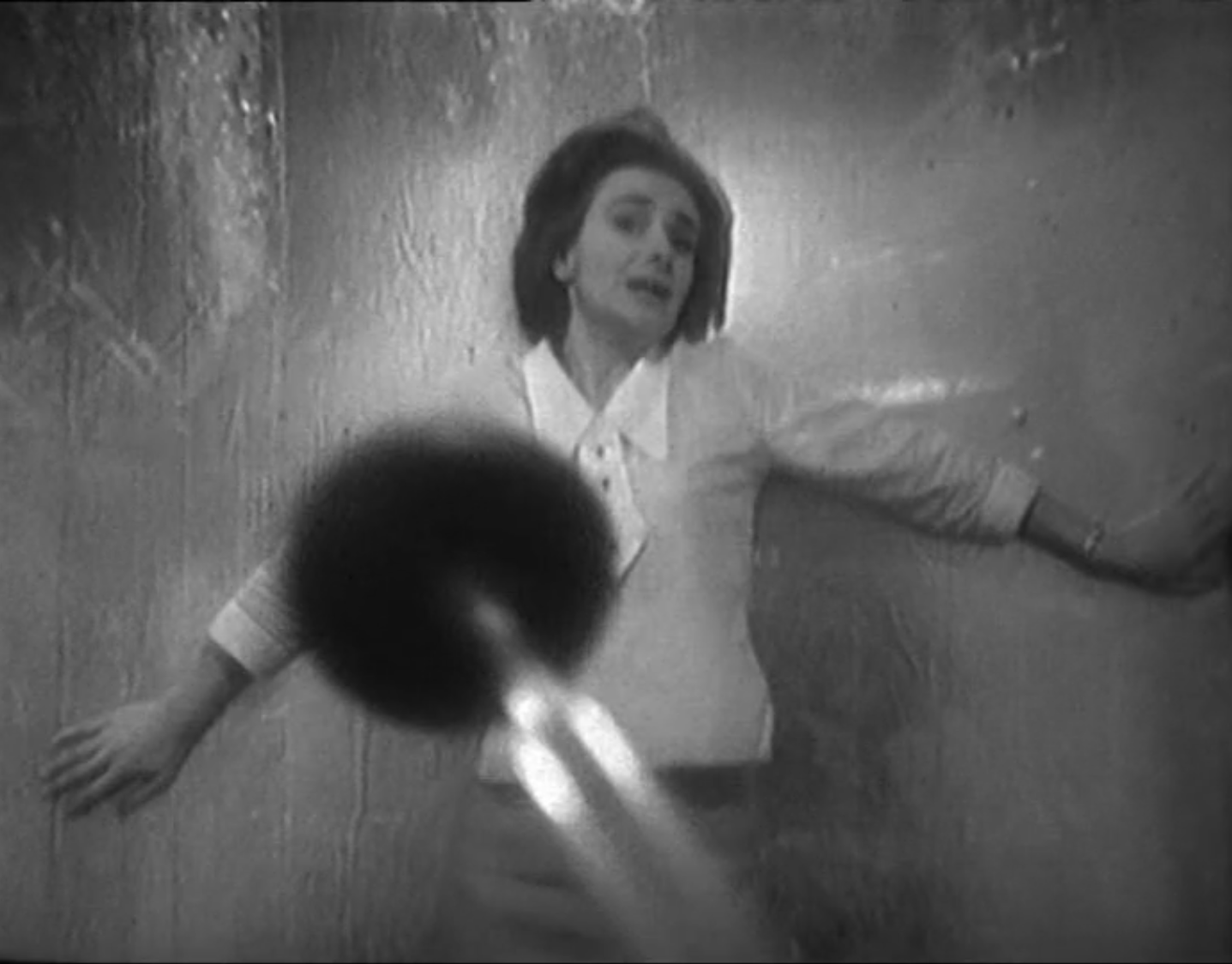
Don’t watch it all at once … The original run is meant to be savoured
One of the great things about nearly all of Doctor Who being on the iPlayer is that you can watch it all in one fell swoop. It’s brilliant.
But if the original run of Doctor Who – sometimes called Classic Who – is New Who to you, do yourself a favour and resist the temptation to binge.
And the reason is the very reason why Doctor Who became a hit with its second serial, The Daleks.
Between 1963 and 1989, there were 694 episodes broadcast on the BBC. Sadly, some are missing from the archives thanks to the policies at the time. But there are still around 600 different episodes to explore. That’s a lot of television.
The biggest difference between the original Doctor Who run and the modern-day series is the way the series were formatted. Each year was called a season, and those seasons featured a mixture of stories broken down into 25-minute chunks. Most were four parts, but some were two, some three, some six, and some were all over the shop, just for the fun of it.
The longest is the 1986 adventure The Trial of a Time Lord, followed by The Daleks’ Master Plan – sadly only a handful of its 12 episodes exist today. Patrick Troughton’s final adventure, The War Games, had 10 instalments, with The Invasion having eight.
Jon Pertwee’s first year – season seven – features one four-part story and three seven-part ones. It’s all quite confusing.
But instead of getting nine of 10 new adventures a year comprising standalone episodes of 45-minuteish duration, as we have done since 2005, we tended to get between five and seven between 1970 and 1985.
While there is little consistency, as Doctor Who has always thrived on change, one constant of the original run was the cliffhanger. And it is for this reason that you will spoil yourself if you binge watch stories you’ve never seen before.
You may hear some people say the 1960s episodes were very slowly paced, especially ‘boring’ stories like The Web Planet, aka the planet of the giant ants. But this is not the case if you watch it as it was meant to be watched – one at a time.
The cliffhanger was the hook that drew us in. Each episode, even at the end of a story back in the 1960s, was part of one long narrative, and the 25-minute episode would usually end with the Doctor or his companions in peril.
For a whole week, we’d have to imagine how they would get out of that.
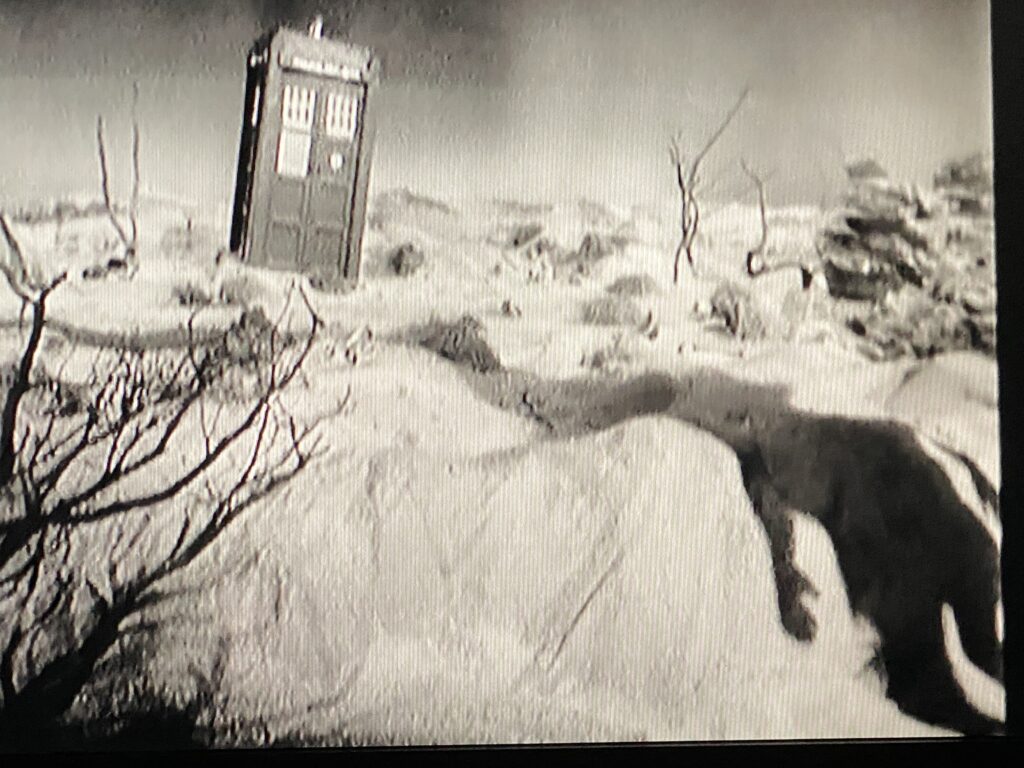
The first Doctor Who cliffhanger at the end of An Unearthly Child. Picture: screengrab (C) BBC
The first episode, An Unearthly Child, gave the audience a shock. This mysterious police box was no longer in a junkyard, but in a strange open land with a sinister shadow cast over the landscape. What had happened? Where was foggy London? Doctor Who was not a story about two schoolteachers and their sometimes-brilliant pupil.
But it was The Daleks (known to me as The Dead Planet thanks to the Radio Times Tenth Anniversary Special) that cemented the importance of the cliffhanger.
The Doctor, Susan, Ian and Barbara were searching a strange city on a dead planet looking for mercury to refill the fluid link. Split up, like every good horror movie, Barbara goes down some corridors. The doors silently glide shut. A strange aperture on the wall keeps track of her movements and then … a strange black disc on a stick appears, Barbara recoils in terror, screams and the title music plays.
What has she seen? What has scared her so much? What will happen to her?
The talk across the country, days before Christmas 1963, was what on earth was happening? People needed to know.
The nearest modern-day equivalent was at the end of The Stolen Earth (2009) when David Tennant’s Doctor was zapped by a Dalek. Was he exterminated? Was he about to regenerate? Fans knew the next story was going to be called The Next Doctor, so was this David Tennant’s swansong in the role?
Only a few people knew what was going to happen and the newspapers were full of speculation.
It was a delicious, but agonising wait to find out. Theories circulated on the internet, people thought through many possible scenarios, and wanted to know what would happen next.
For old timers, who grew up with the Classic Era, this was our weekly treat. What happens next?
So, if this is your first time with the original run of Doctor Who, pace yourself. Enjoy the stories one at a time. Agonise over how the Doctor will save the day or the companions escape.
It is truly the trip of the lifetime. Enjoy!











